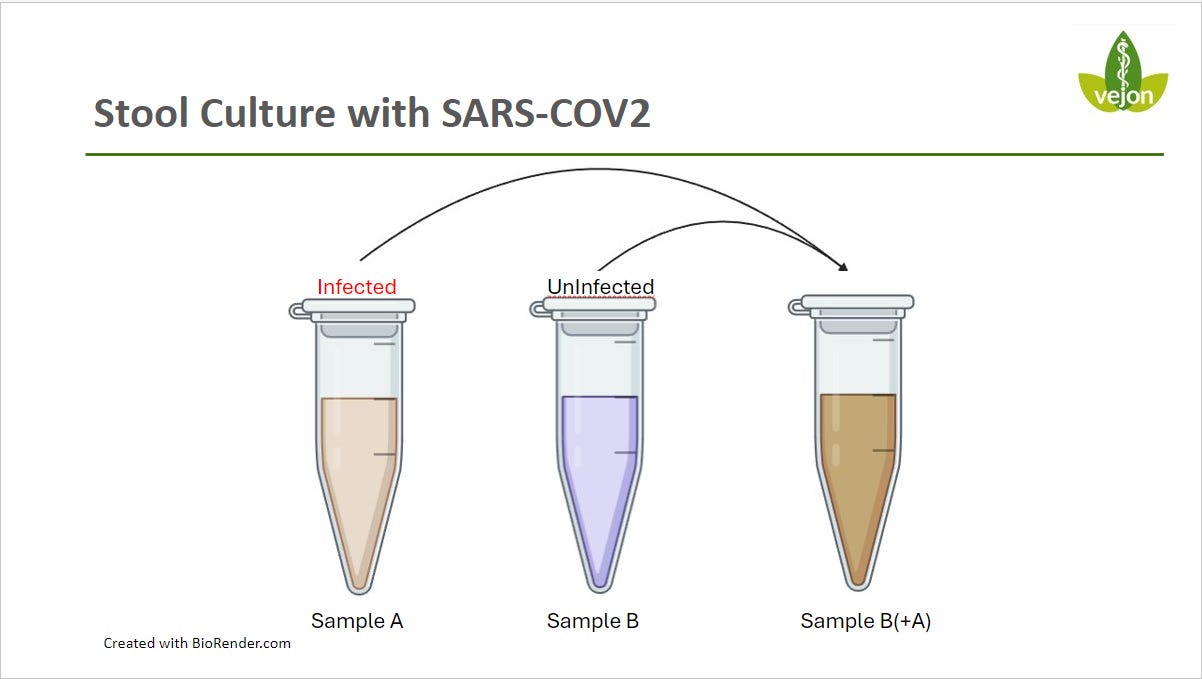This video will discuss a critical aspect of SARS-CoV-2, the virus responsible for COVID-19, which has often been overlooked by the scientific community: its interaction with bacteria. This discussion is rooted in research dating back to 2021, which sheds light on the virus's behavior and its implications for human health.
In 2021, a groundbreaking study was conducted in Italy, examining the presence of SARS-CoV-2 RNA in fecal samples. Despite its significance, this research did not receive the attention it deserved due to the focus on vaccines at the time. Recently, during a discussion about the virus's origins, the remarkable capabilities of SARS-CoV-2 were brought back to my attention, highlighting the need to revisit this crucial study.
The research, led by Dr. Carlo Brogna, involved collecting fecal samples from infected and uninfected individuals. These samples were cultured in a nutrient broth to observe changes in viral RNA. The team designed a test to cultivate the microbiome from these samples and measure the viral load, providing valuable insights into the virus's behavior in the human gut
Key Findings:
Viral RNA Replication in Stool: The study demonstrated that SARS-CoV-2 could replicate in stool samples. Infected samples showed a significant increase in viral RNA over 30 days, indicating the virus's ability to persist and multiply in the gut environment.
Impact of Antibiotics: To determine the role of bacteria in this replication, the researchers added various antibiotics to the cultured samples. They found that specific antibiotics, such as metronidazole, vancomycin, and amoxicillin, could reduce the viral RNA to zero, suggesting that certain bacteria are critical for viral replication.
Bacterial Overgrowth: The study observed that SARS-CoV-2 infection led to the overgrowth of Clostridium difficile, a toxin-producing bacterium. This overgrowth was associated with the depletion of beneficial bacteria like bifidobacterium, indicating a shift in the gut microbiome that favors harmful bacteria.
The findings suggest that SARS-CoV-2 not only affects the lungs but also significantly impacts the gut microbiome. The overgrowth of toxin-producing bacteria like Clostridium difficile could contribute to severe COVID-19 symptoms and long-term health issues. Moreover, the study highlights the potential for bacterial toxins to exacerbate the disease by disrupting the balance of good bacteria in the gut.
Understanding the interaction between SARS-CoV-2 and bacteria is crucial for developing comprehensive strategies to combat the virus. Protecting the upper airways and maintaining a healthy gut microbiome are essential steps in preventing severe outcomes. This research underscores the importance of considering the gut's role in COVID-19 and the need for further studies to explore this complex relationship.
Please support my research efforts by subscribing to Vejon Health Substack. Your support allows me to continue bringing you my insights in a timely and effective way.
















Share this post